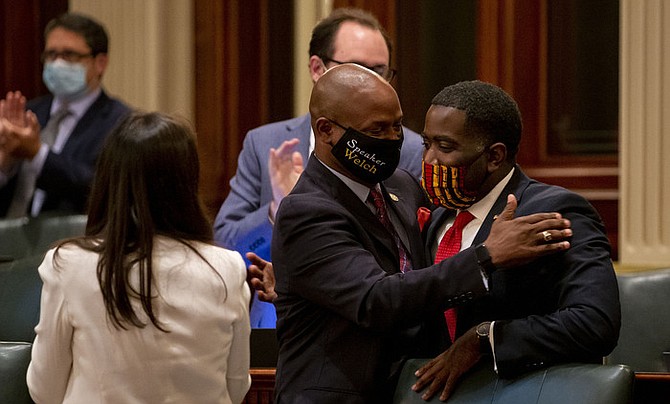The Long Awaited Comprehensive Clean Energy Bill Passes
By Tia Carol Jones
The Senate Bill 2408 was passed by the Illinois Senate 83-33 on Monday, Sept. 13, and has been signed into law by Governor JB Pritzker on Wednesday, Sept. 15.
Legislators have been working on The Clean Energy bill, which lays out a real plan to transition Illinois to clean energy, for three years. Illinois State Representative Marcus Evans, D- Dist. 33, wishes the transition to clean energy could be quicker. “Doing nothing is going to be detrimental to the environment. What we laid out was a true plan that will be supported by the Federal Government and something that we can model here in the State of Illinois as a leader,” he said.
One piece of the legislation will supplement Exelon to ensure that the nuclear fleet can operate. There also will be a solar buildout, with investment in a solar infrastructure and solar development. According to Evans, there will be a transition from coal that will shut down private coal plants by 2045. Municipal, co-op owned coal plants will transition out.
The legislation also includes Clean Jobs Workforce Network Program, the Clean Jobs Curriculum, the Illinois Climate Works Pre-Apprenticeship Program, the Clean Energy Contractor Incubator Program, the Returning Residents Clean Jobs Training Program, and the Clean Energy Primes Contractor Accelerator Program.
To prepare the workforce for these new employment opportunities, there will be workforce hubs. Those hubs will be located on the South and Southwest sides of Chicago, Waukegan, Rockford, Aurora, Joliet, Danville, Peoria, Champaign, Decatur, Carbondale, Alton and East St. Louis.
The bill reduces fees for deposits for low-income residents. It also reduces fees for online payments. Evans said the legislators are watching shutoffs and collection activity to make sure utilities are not out of control. They are also requiring independent audits for shutoffs and collections. “There’s a lot of language in here for low-income folks who are just trying to pay their bills,” he said.
Evans was tasked by Illinois House Speaker Emanuel "Chris" Welch to work with other leaders, Hoffman, Gabel, Buckner, and Williams to be the final convener. Welch pushed for collaboration. “You can always get to agreeing and compromising if you work together. I don’t compromise my values, but you have to compromise and work together in politics,” he said. “You don’t get to 83 without listening to everybody and working together.”
Welch, who has been Speaker of the House for eight months, was proud to see the hard work come to fruition. “With the Senate's passage of this comprehensive energy proposal, the Illinois legislature has positioned our state as a national leader for clean energy policies," Welch said in a statement. “I look forward to seeing Governor JB Pritzker sign it into law so we can put Illinois on the path to a greener future, while also prioritizing jobs, a diversified energy sector and much-needed utility ethics reforms."
Lieutenant Governor Juliana Stratton called the passing of the bill a confirmation of the State of Illinois’ commitment to climate justice. She described the bill as an essential tool in the fight for justice, equity and an opportunity for a healthier, greener future.
“Three years in the making, this historic legislation includes numerous provisions to end Illinois' reliance on fossil fuels and transition to 100% clean energy by 2050,” Stratton said in a statement. “Recently, we have seen the devastating effects of rising temperatures through wildfires, hurricanes, and droughts. Black, Brown, and Indigenous communities bear the brunt of this global emergency. This law ensures they will have a voice in our efforts to slow climate change through expanded job opportunities and entrepreneurial inclusion in the clean energy sector. We need to embrace bold measures that are based in science and uplift all of us.”

